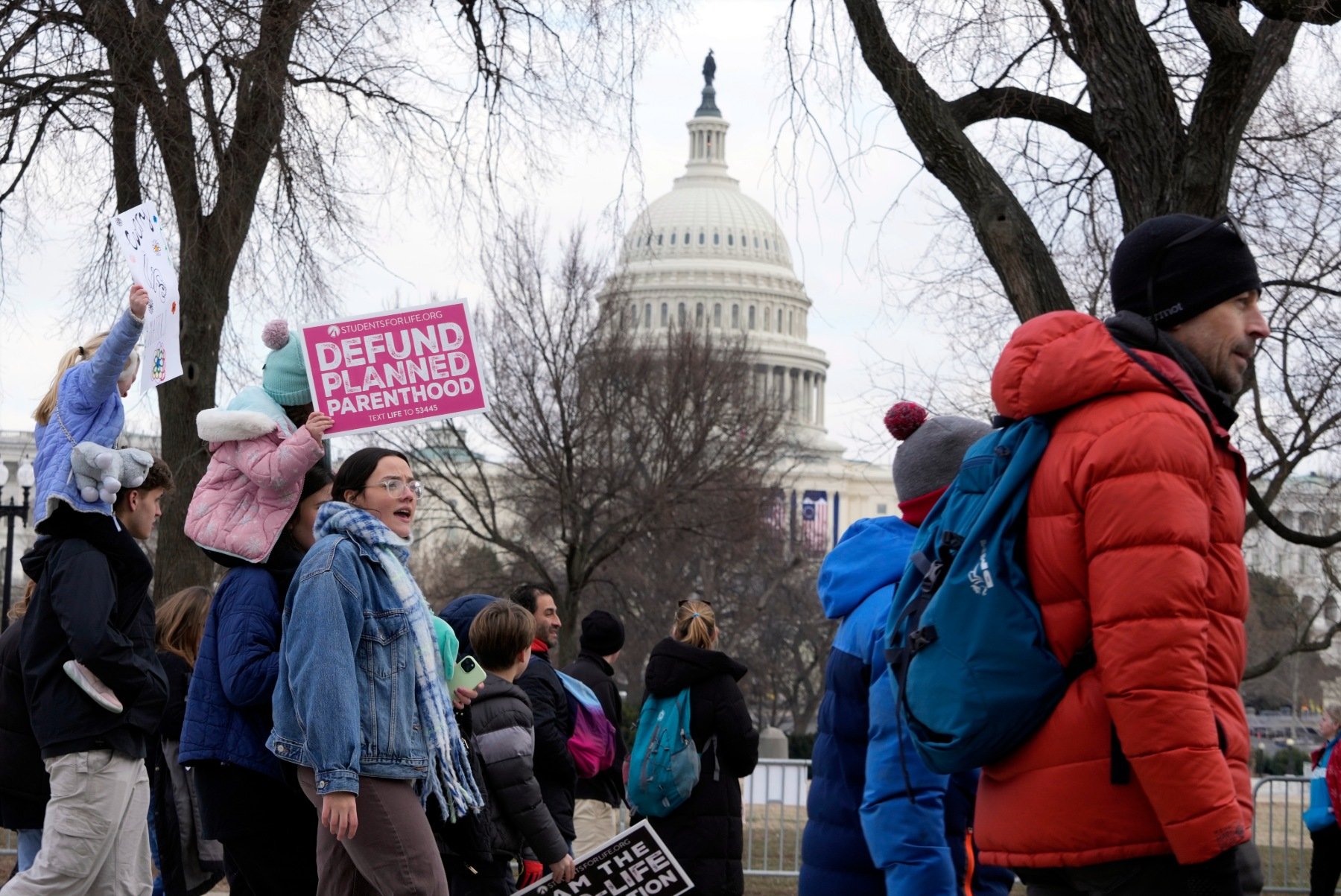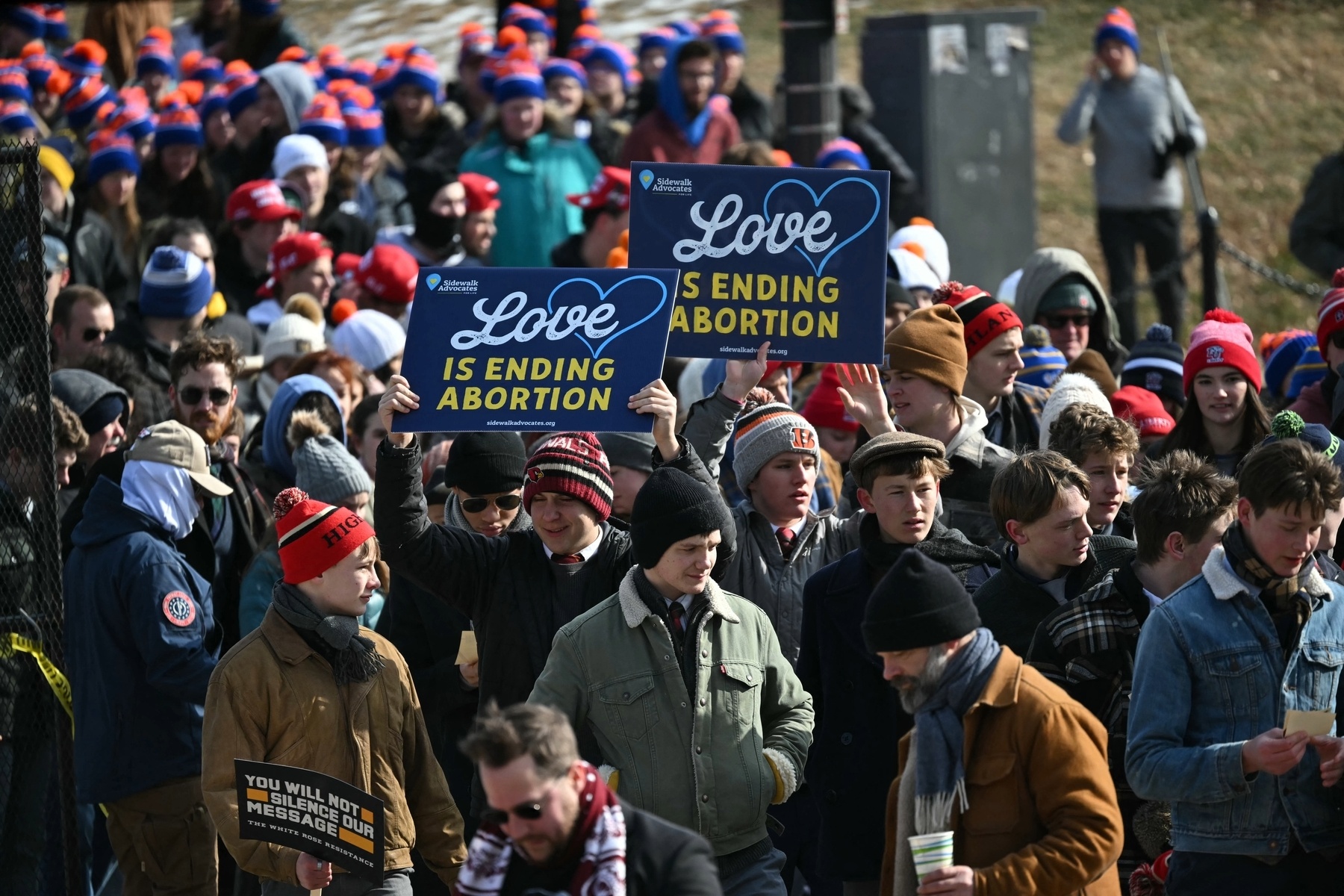Editor’s note: This article has been updated to reflect abortion actions taken after the March for Life.
Newly bolstered by public support from President Donald Trump, anti-abortion supporters gathered at the annual March for Life in Washington, D.C. Despite Trump’s tepid support for abortion policy during the 2024 campaign and relative silence on the topic since Monday’s inauguration, he seems ready to embrace anti-abortion messaging, even if details on future actions remain slim.
Abortion was absent from Trump’s first round of executive orders, and he wasn’t included on the initial release of March for Life speakers. The day before the march, he and Vice President JD Vance were added to the programming.
Since 1974, the nation’s biggest anti-abortion gathering has persisted in efforts to “make abortion illegal and unthinkable,” as March for Life President-elect Jennie Bradley Lichter told the crowd. In 2020, Trump became the only sitting president to attend.
The march is typically held around the anniversary of Roe v. Wade, which was overturned in 2022. But even with federal abortion protections gutted, anti-abortion activists and lawmakers say their work isn’t finished. Without offering specifics, Trump, via video recording, pledged that his administration would support pregnant women and families, and also combat what he called the “weaponization of law enforcement against Americans of faith.”
The day before the march, Trump pardoned 23 people convicted of blocking access to reproductive health clinics in violation of the Freedom of Access to Clinic Entrances Act. In his remarks, Trump said that one of the people he pardoned had been praying outside of a clinic.
“Never again will religious persecution be allowed to happen in America,” he said.
Trump also announced that a “reformed” Department of Justice will investigate what he referred to as “radical left attacks” on churches and crisis pregnancy centers, seemingly referencing crisis pregnancy centers vandalized in 2022. In 2023, Republican lawmakers proposed a resolution to condemn violence against anti-abortion centers.
During his previous presidency, Trump set the stage for what his new vice president said the administration will continue to progress — helping overturn Roe and appointing anti-abortion judges in federal courts throughout the country.
“Our country faces the return of the most pro-family, most pro-life American president of our lifetimes,” Vance, who attended Friday, told the crowd.

Neither Trump nor Vance addressed larger policies anti-abortion groups have pushed for, including a federal abortion ban or the Comstock Act. (After the march, Trump signed a presidential memorandum reinstating the global gag rule, which bars American foreign aid from going to organizations that perform or promote abortion. He also issued an executive order cementing the Hyde Amendment, which prevents federal dollars from funding abortions.) However, just before the march, Trump started to hint where his priorities might lie.
Most recently, on Thursday, Trump endorsed the Born Alive Abortion Survivors Protection Act, which will require health care professionals to treat a child born alive during an attempted abortion with the “same degree of professional skill, care and diligence” as provided during normal childbirth. Abortions done after fetal viability represent less than 1 percent of all abortions. They are typically performed due to a late miscarriage or dangerous medical complications.
Trump’s recent executive orders, while not addressing abortion directly, may inform abortion policy, House Speaker Mike Johnson told the crowd on Friday. An executive order issued on Monday that established the government’s policy to recognize only male and female sexes, also stated that sex is established at conception. Johnson interpreted that order as defining “life as beginning at conception rather than birth.”
State-level politicians also championed their work restricting abortion. At the rally, Florida Gov. Ron DeSantis tied abortion bans to other conservative concerns such as diversity, equity and inclusion initiatives.
A six-week abortion ban, championed by DeSantis, went into effect in Florida in 2024. Additionally, Florida led the conservative front in banning public colleges and universities from spending money on DEI initiatives, and other conservative states, including Texas and Idaho, quickly followed suit. In the first two days of his administration, Trump signed multiple executive orders that revoked President Joe Biden’s DEI policies.
“We have defeated the political left,” DeSantis said. “Florida is not only the place where woke goes to die, it’s the place where babies go to live.”
Despite scant details on how he might enact anti-abortion policy, Trump’s supporters believe his second term represents a shift toward those priorities.
“It’s a new golden age of America,” Johnson said. “Together we are rebuilding a culture of life, and it begins now.”





